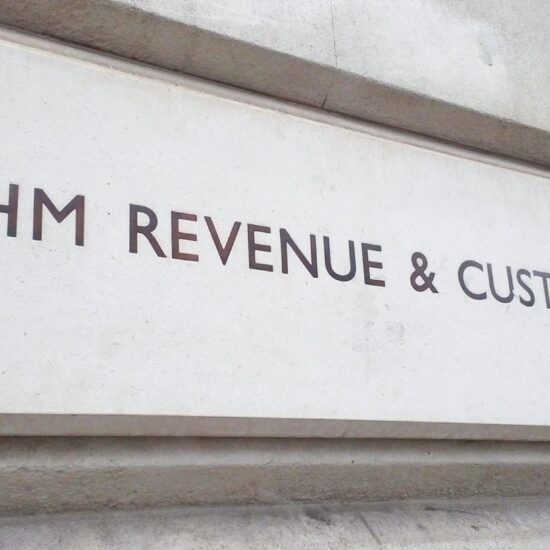HMRC approach is harming valid R&D claims
Danielle Ford, Head of tax disputes and resolutions, haysmacintyre
With HMRC investigating half of research and development tax relief claims, and criticism of inexperienced case workers, Danielle Ford, partner and Riocard Hoye, senior manager at haysmacintyre, examine how companies can deal with an investigation
Research and development (R&D) tax relief, aimed at supporting companies that invest in and work on innovative projects in science and technology, was first introduced in 2000, with R&D expenditure credit (RDEC) for larger companies being introduced in 2002. This article will refer to both schemes as R&D for simplicity.
R&D tax relief is designed to encourage investment in innovation and economic growth, broadly through tax relief against qualifying expenditure. However, R&D remains a hot topic and HMRC has changed its approach to R&D claims to ‘deny first, discuss later’.
Increasing claims
HMRC has recorded a large spike in R&D claims, stating that the level of claims has more than doubled since 2015/16 to 2020/21 (the most recent year for which they have complete information).
Whilst an increased volume of claims is not necessarily an issue, HMRC has noted an increase in ‘abuse and boundary-pushing’, including parties submitting ineligible claims on behalf of clients, taking advantage of HMRC’s perceived lack of checks.
HMRC’s response
HMRC has tightened its R&D claims guidelines and processes in order to address perceived areas of risk, including disallowing repayments to third parties and the introduction of the additional information form (AIF) from August 2023. The AIF form requires claimants to provide further detail to support claims, which will allow HMRC to better assess their validity.
In addition, there has also been an increase in HMRC’s compliance activity, to tackle incorrect R&D claims. HMRC’s approach to handling the volume of claims, involves identifying the highest perceived risk and undertaking targeted enquiries.
However, this increased scrutiny has inadvertently affected genuine claimants. Due to the surge in cases, HMRC’s existing R&D teams are overwhelmed, leading to staff being drafted in from other areas.
As such, those with limited or no experience in R&D tax credits are overseeing enquiries. As a result, it appears that HMRC has developed a set of instructions and/or scripts for caseworkers to follow when working such cases, with many companies receiving very similar communications from HMRC.
We have also seen HMRC’s fraud investigation service (FIS) operating R&D enquiries in some cases. This is incredibly unusual as this is a huge departure from the normal work of the FIS, which usually deals with high value complex cases.
The FIS R&D process is especially rigid, with the only contact being an email address, no option to speak to a caseworker and decisions are made by the FIS, with poor communication and no explanation.
HMRC’s current approach
The approach has been remarkable for all of the wrong reasons – the Chartered Institute of Taxation (CIOT) expressed concerns with HMRC’s approach in two open letters. The CIOT’s letters are significant since the professional body maintains a good relationship with HMRC and therefore it was not a decision that was taken lightly.
The CIOT expressed concerns around HMRC’s unhelpful attitude, poor communication and inexperienced caseworkers.
The letters also discussed the collateral damage of genuine claims being rejected or withdrawn, as part of what HMRC believes to have been a hugely successful exercise in reducing error and abuse, and discouraging non-compliance.
The CIOT’s concerns echo the wider industry’s thoughts towards HMRC’s approach.
In its response to the CIOT, HMRC defended its position by pointing to the high rate of ineligibility of claims due to error and abuse, stating that it believed half of all claims submitted at the time of writing to be invalid.
HMRC’s view on ineligibility is reflective of its current attitude to enquiries. When dealing with R&D cases, we are seeing key evidence and explanation in support of the claim being overlooked or not referred to in HMRC’s responses. This could be due to or the inexperience and lack of knowledge of caseworkers in understanding the information provided.
The CIOT’s point about collateral damage mirrors our experience, where genuine claims, originally submitted with a full R&D report and all supporting information provided upon request, have been challenged by HMRC.
In some cases, claimants have given up due to potential time and cost of challenging HMRC further. Even in successful defences, taxpayers are incurring significant professional costs in simply defending their eligible claim.
If HMRC decides a claim is not valid after first appeal and review, taxpayers are left with appealing to the tax tribunal. This may cost tens of thousands of pounds and is prohibitively expensive for many companies, particularly those with relatively small R&D claims.
However, the danger is when those making genuine claims are pushed into walking away, especially smaller companies. They may reconsider further investment and future claims due to the costs involved and potential unfair rejection.
This is directly contrary to the original purpose of the relief, which is supposed to encourage investment in technological and scientific advances. We may well see innovation slow down and the economy suffer as a result.
Even though all may appear to be doom and gloom, our experience shows some enquiries can be concluded in a timely manner, without any adjustments required.
What next?
We believe that the volume compliance approach will decrease once HMRC hits certain undisclosed internal targets and compliance activity can reach a normal level. With the AIF filing requirement, we expect to see a decrease in compliance activity in the next 18 months.
This will enable compliance staff to spend more time on each claim, deliver a higher quality review and provide a more accurate judgment on claims.
With more experienced caseworkers, HMRC can work towards reducing R&D fraud, whilst also reducing the number of legitimate claims being rejected.
Making an R&D claim? Claim rejected?
Whether you are deliberating about whether to make a claim, or have made a claim and received an HMRC enquiry, seeking professional advice is crucial. An experienced professional advisor can suggest whether a claim is likely to be successful and ensure you comply with the guidelines. With HMRC’s increased scrutiny, it is more important than ever to take the right advice.







